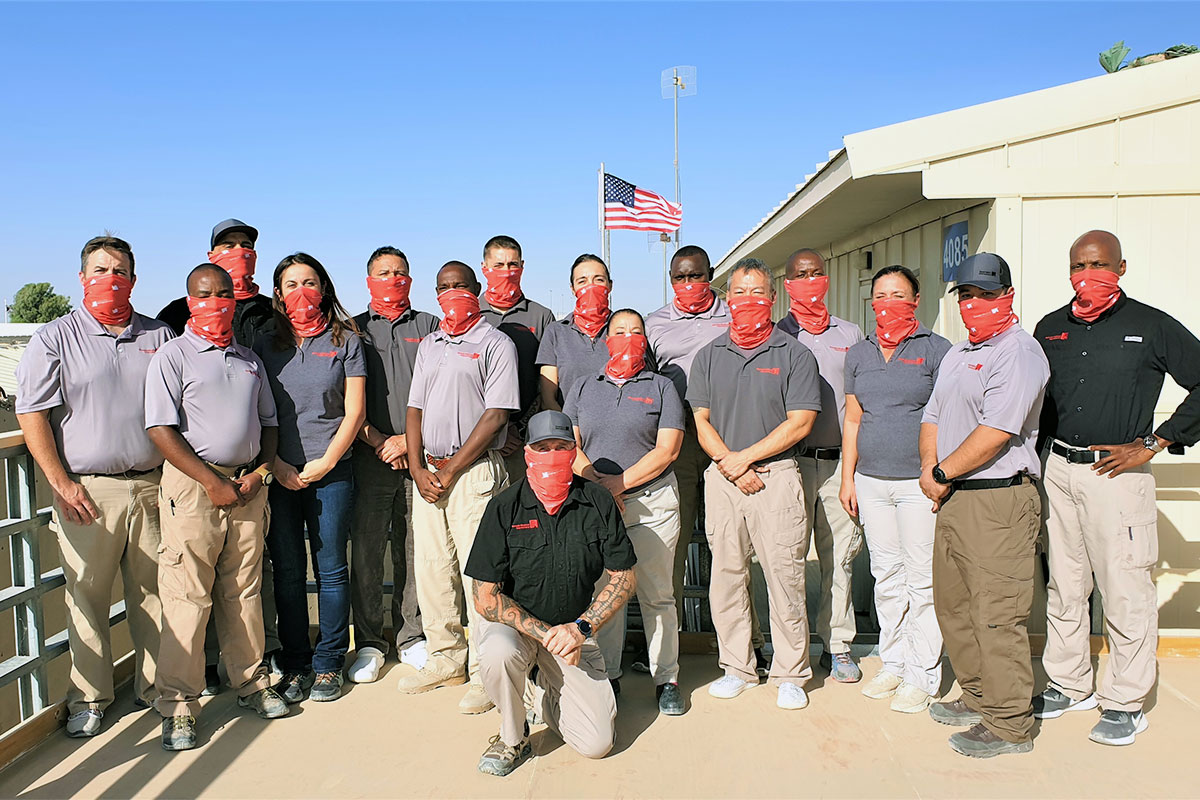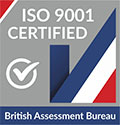Brian Vincent joined Remote Medical International® in January as CEO and President. After a successful decade of leadership from Andrew Cull, Brian has big shoes to fill. But, with 25 years of corporate management experience, Brian has built a career out of positioning companies for success. He has also developed a reputation for a down-to-earth style that motivates his team to fulfil and exceed their potential. This month, Brian volunteered to answer a few questions about his professional background and personal life. From strategic goals to Van Halen concerts, Brian’s interview sheds light on the new face of Remote Medical International.
As the Founder & Principal of Corporate Triage, you’ve made a career out of helping companies build and realize their potential. You’re basically Superman in the world of corporate rebuilding. As proof, you’ve been offered the CEO position at every company you’ve worked with in the last seven years. But this is the first time you accepted the invitation. So, why Remote Medical International?
I picked this one because, quite frankly, I’m interested in it. It’s—how do I say this?—it’s cool. What this company does is cool. The fact that RMI has a global reach influenced my decision as well. For many years, I worked on projects all over the world, but later in my career all of my consulting gigs were primarily domestic. I wanted to get back to the international scene.
The second reason is that RMI has great potential. The opportunity here is huge. Think about it this way: our strengths match well or exceed those of the industry leader, and they’re a billion dollar plus company. As they do in Japan—we must seek out the leader, emulate the leader, and pass the leader. There’s a lot of opportunity for innovation and, therefore, potential. We have a critical mass of quality people and tools that we need to effectively leverage to crank-up the growth engine. But, yeah, RMI is cool and has kind of an athletic feel too, and as an athlete in the past (and somewhat in the present), that’s appealing to me.
You played football and rugby at Berkeley. What was that like?
I had a fair amount of success but I paid for it in terms of injuries. The PAC-12 (PAC-10 then) is a tough league. I was fortunate to be on scholarship but, as a result, the expectations were high as was the control factor. Great experience! Rugby was the polar opposite and became a nice relief. It was all about getting together with the boys. It was a crowd—a fraternity of sorts. We were really good and ended up winning two NCAA championships back to back, so we had a lot of fun.
Sounds kind of like being in the office. What’s your take on the company culture here so far?
Youthful comes to mind. I am definitely the old guy around here. There’s a lot of buzz. Truthfully when I first arrived things seemed kind of flat [in the office]. Everyone was clearly committed to the company, but we were in a “wait and see” mode. It’s a very different environment today. The interaction between office staff is very solid. It’s a fun culture, and there’s always laughter—you can hear it, especially from Genevieve. I’m not yet going to say I fit in, but I’m comfortable here.
What goals do you have for Remote Medical International?
Teamwork, innovation, judgment, action to the point of disruption and financial success. The management team, after much careful thought, created six operating goals to drive our 2013 planning process. Each goal has four to six accompanying measurable objectives and timelines to help keep us focused. I’m very confident in these goals, and I trust that we’ll see results.
What do you know about remote medicine?
My experience has only been from a customer’s perspective so I have a lot to learn. I need to understand what everyone does on a daily basis, how each function operates, and then maybe I can add some long term value. This all goes straight to one of my key management principles: “I don’t know it all.†So, to be effective, I have to surround myself with experts and position those people for success. It’s important to not always lead out in front but to lead from behind. I want to make sure the supply lines are there so those out front can be successful.
Does this mean we’ll see you in a Wilderness First Aid (WFA) class this year?
I thought about that, but then I remembered that my daughter’s a doctor, so she can take care of me. But I actually would like to take the WEMT. If time permits, and if it helps me be more effective on the job.
What’s RMI’s greatest strength?
This might sound trite, but it seems to be the relationships we have with our customers and reputation in the industry which is a tribute to the RMI team. We’ve spent ten years building our brand, and that’s supported everyday by the relationship our employees have with our customers. Second to that, we have a solid back office. I have found that a lot of young companies don’t invest in scalable systems, and we have—smart move. This provides us with an analytical view of the business, our opportunities and areas of waste. From there, it’s about being proactive and confident. We’re going to make mistakes, but I’d rather do that than be frozen and reactive.
So, looking at your resume, I see 25 years of management experience. Let’s rewind a few decades—what was your very first job?
Selling copiers for Savin Corporation (Ricoh). I got back from Europe after a year and a half in the early 80s. The economy was in the tank, and I was broke. I moved back into my parent’s house, felt like a guest, set out to get a job immediately and saw an ad to sell copiers. I did that for nine months until I jumped into the computer industry. Best cold-calling experience one can have, and I made enough money to pay rent. This kicked-off my career. I grew up on the sales/marketing side of the house, not the engineering side, so the job worked out for me.
Where did you grow up?
I lived in Northern California, San Mateo, until I was fourteen when my family moved to Lakewood, Washington. It was the best that thing that ever happened to me. I was a bit of a lost child taking full advantage of California’s “experimental†school system. Then, overnight practically, I found myself at an academic, athletic high school, and I was forced to conform.
I know you have kids. Who’s your favorite?
[Laughs]. I love them all. I run a zone defense—not man to man. Shea, Logan, and Cooper. They’re great kids (young adults) and I love hanging out with them.Any pets?
I inherited my mom’s little white Westie when she passed away in 2007. My daughter told me, “Big guy. Small dog. Not sexy.” Oh, well.
So what does a typical weekend look like?
I exercise a lot. I ski or go on a bike ride, and I always run. I do a lot of things with the kids—now it’s mainly feeding them. Evening activities include everything from a movie to singing along to Brandi Carlile.
What was the last concert you saw?
Van Halen at the Tacoma dome. It was just like my high school days—brought back memories of seeing Led Zeppelin.
What about your first concert?
Santana.
I was hoping for something more embarrassing.
I’ve been to ‘N Sync and Hanson, but I can blame those on the kids. Oh, the screaming. I plugged my ears with pieces of a napkin. But I do really love music. I’m so impressed with people who have individual talents. People who can sit down at a piano and entertain a crowd, or put together mixed media art that has feeling, or can prepare a meal that leaves you holding your breath—people who can sing or act: those are the talents I love because I can’t do any of them. I used to grow roses, so that’s something, I guess. I had over thirty varieties at one point. The house was full of roses year round, and I would always leave one by my daughter’s bed. Other than roses, I don’t have much of a talent for artistic creation but I appreciate those who do.
Let’s talk food. What are your favorites?
Cheesecake is number one. Then there’ is what my kids and I call a “victory dinner.” Whenever anything happens in their lives that’s worth noting – grades, license, jobs, we go to the Metropolitan Grill for dinner. We order the same thing every time—filet mignon, garlic mashed potatoes, and creamed spinach. It’s the best, especially since I don’t cook. It’s become an expensive tradition.
Is there anything else that you want the world to know about you?
I don’t want them to know about me. I want to know about them—that will help me be a better leader. I’m perfectly comfortable in my style even though some might think it’s odd. I’m not conventional. I swear and laugh at myself and self-deprecate. If I don’t get it, I’ll tell you. I won’t play the role. I am the role. I’m not going to stitch words together to try and come across like I know everything. I’m not going to act out the cover of a business book. I’m going to write the book.


